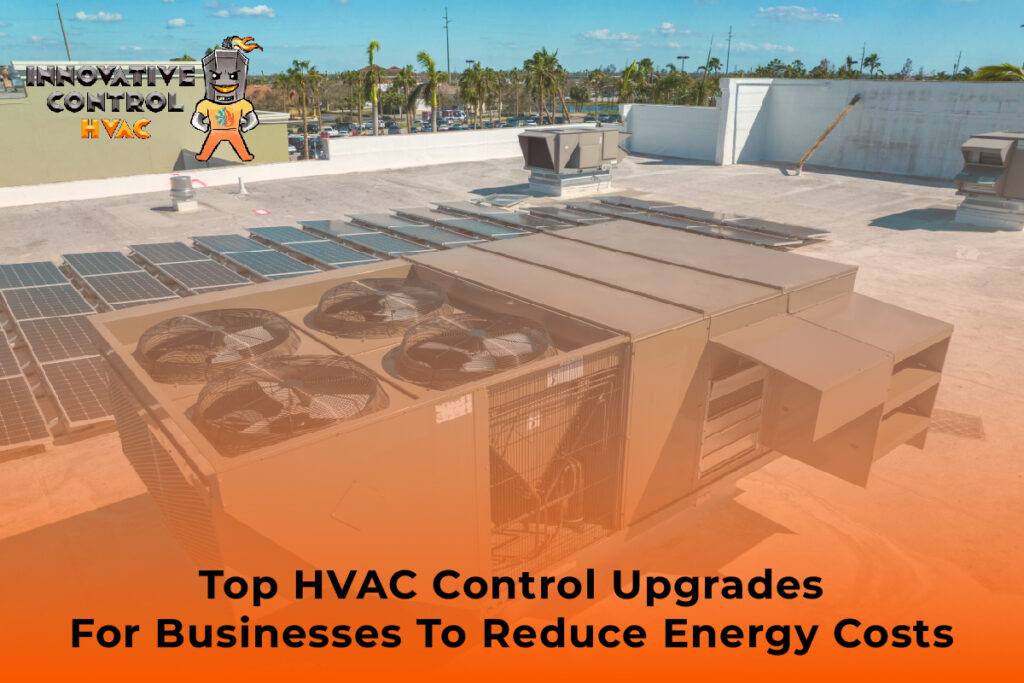
Managing indoor climates efficiently has become more crucial in today’s fast-paced and environmentally conscious world. Whether you’re a homeowner aiming to cut down on utility bills or a business striving for sustainability, understanding HVAC control systems is essential. These systems regulate the temperature, enhance indoor air quality, and play a pivotal role in overall comfort and energy efficiency.
Let’s explore how modern HVAC control upgrades can transform your indoor environment and reduce operational costs.
The Evolution of HVAC Control Systems
Gone are the days when a basic thermostat was the only way to manage indoor temperatures. Today’s commercial HVAC systems have evolved into advanced networks, integrating cutting-edge technology to optimize performance and minimize energy waste. This evolution has made way for smarter homes and workplaces, where climate control is intuitive and energy-efficient.
Smart Thermostats: The Heart of Modern Climate Control
Smart thermostats are at the forefront of energy-saving HVAC solutions. These devices learn your daily routines and preferences, automatically adjusting temperatures to maximize comfort while reducing energy consumption.
For instance, the Ecobee Smart Thermostat Premium regulates temperature, monitors indoor air quality, alerts you to issues, and integrates seamlessly with smart building systems.
Likewise, the Nest Learning Thermostat offers adaptive learning, adjusting to your schedule over time. Its sleek design and user-friendly interface make it a go-to solution for businesses that prioritize both functionality and aesthetics in their HVAC control systems.
Energy-Efficient Heating: A Smarter, Greener Approach
Heating accounts for a significant share of energy consumption in commercial buildings. Upgrading to energy-efficient heating systems, such as geothermal heat pumps, can drastically reduce usage and improve long-term cost efficiency.
These systems utilize the Earth’s stable underground temperature to provide reliable heating and cooling. With a lifespan of over 25 years and minimal environmental impact, geothermal systems offer one of the most sustainable HVAC upgrades available.
Zoned HVAC Systems: Targeted Comfort and Control
Not every area within a commercial building requires the same temperature settings. That’s where zoned HVAC systems come in. By dividing a building into multiple zones—each with individual thermostats—businesses can ensure comfort where it matters and avoid wasting energy in unoccupied areas.
This targeted climate control translates to substantial cost savings and better employee and customer satisfaction.
HVAC Automation: Smarter Systems Through AI and IoT
Automation is revolutionizing the HVAC industry by incorporating artificial intelligence (AI) and the Internet of Things (IoT). These intelligent systems can monitor data in real time, such as humidity, occupancy, and ventilation rates, and make predictive adjustments to optimize efficiency.
One example is BrainBox AI’s ARIA, which uses real-time data and machine learning to proactively manage HVAC systems. This kind of automation not only saves energy but also helps reduce a building’s carbon footprint.
Indoor Air Quality Monitoring: A Health-First Approach
Modern HVAC systems go beyond heating and cooling—they actively contribute to healthier indoor environments. Devices like the Woosh Air Quality Monitor detect pollutants, allergens, and airborne particles, working in tandem with HVAC systems to purify indoor air.
Real-time monitoring empowers business owners and facility managers to make informed decisions that promote employee health and customer well-being, all while maintaining high energy efficiency.
The Importance of Regular Maintenance
Even the most advanced HVAC control systems require regular maintenance to ensure peak performance. Routine inspections, filter replacements, and system cleanings help prevent inefficiencies and costly breakdowns.
For businesses, implementing a scheduled HVAC maintenance plan reduces the risk of operational disruptions and extends the life of the equipment.
Financial Incentives and Sustainability Benefits
Investing in energy-efficient HVAC upgrades doesn’t just reduce operating costs—it often qualifies businesses for financial incentives. Many regions offer tax credits, utility rebates, and green building certifications for implementing eco-friendly solutions.
Additionally, reducing energy usage directly contributes to lower greenhouse gas emissions, helping businesses meet their sustainability goals and support climate change mitigation efforts.
Looking Ahead: The Future of HVAC Control
The future of HVAC technology is bright, with ongoing advancements in renewable energy integration, AI-driven automation, and compact system design. Staying informed about these innovations ensures your business remains at the forefront of HVAC performance and energy savings.
Proactive upgrades today can result in significant returns tomorrow, in both financial and environmental terms.
Wrapping Up
Adopting advanced HVAC control systems is no longer optional for businesses focused on cutting costs and promoting sustainability. From smart thermostats and zoned systems to AI-powered automation and air quality monitoring, the range of available upgrades is both vast and valuable.
By implementing these modern solutions, businesses can create a more comfortable, healthy, and cost-efficient indoor environment, benefiting employees, customers, and the planet.
FAQs
Q1. What is a smart thermostat, and how does it differ from a traditional one?
A smart thermostat connects to your building’s Wi-Fi, enabling remote control through apps and smart devices. Unlike traditional thermostats, smart models learn your schedule and preferences to adjust temperature settings, automatically optimizing energy use and comfort.
Q2. How do zoned HVAC systems save energy?
Zoned systems divide a building into sections, each with its thermostat. This setup ensures that only occupied areas are heated or cooled, minimizing energy waste and lowering utility bills.
Q3. What role does indoor air quality monitoring play in HVAC systems?
Air quality monitors detect pollutants and allergens. When integrated with HVAC systems, they help ensure cleaner air by automatically adjusting ventilation and filtration levels, enhancing health and comfort.
Q4. Are there financial incentives for upgrading to energy-efficient HVAC systems?
Yes, many local and federal programs offer tax credits, rebates, and other financial incentives for installing high-efficiency HVAC systems and renewable energy integrations.
